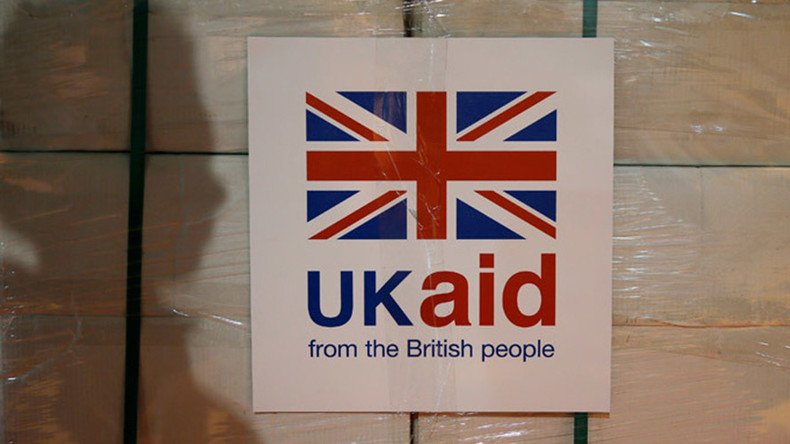UK govt squandering £100mns in foreign aid money – MPs

Westminster is squandering hundreds of millions of pounds in foreign aid ring-fenced for humanitarian crises because government officials are unaware of how the money is being spent, MPs have warned.
A damning report published by the Public Accounts Committee (PAC) on Wednesday has concluded the UK government lacks a “full and clear understanding” of where funding given to United Nations (UN) agencies and associated organizations ends up.
While the spending watchdog said Britain’s Department for International Development (DfID) is doing a reasonable job in tackling certain humanitarian crises, it warned the government body lacks a comprehensive grasp of what constitutes a successful intervention.
New Report: PAC examines how DfID responds to crises overseas https://t.co/G3wkAxVdDY
— Public Accounts Comm (@CommonsPAC) April 20, 2016
The PAC argued that UN bodies, which attract more than 50 percent of Britain’s humanitarian aid budget, risk jeopardizing Westminster’s attempt to lock down value for money because they are embroiled in a “turf war.”
The spending watchdog argued that bureaucratic inefficiency and an aversion to reform is eroding UK taxpayers’ money, while foreign aid projects suffer.
“The value for money for the UK taxpayer of the department's funding of UN agencies is undermined by the overlapping remits of the agencies and inflexibility in their systems,” the PAC report said.
“UN organizations received around half of the department’s £1,288 million spending on humanitarian activities in 2014-15.
“Despite being a major and well-regarded donor, the department has found it difficult to influence the UN to adapt its structure and the practices of individual UN bodies to improve their effectiveness.”
Committee chair Meg Hillier, a Labour MP, said the government must be held to account over its spending of public money.
“In responding to crises, achieving value for money means critical support can be provided more effectively to more of the people who need it. The taxpayer pound goes further,” she said.
“The Department operates in difficult environments and the challenges it faces can change quickly. It is vital it looks constantly at the way it spends public money and ensures it is being used to best advantage.”
Hillier said that such an objective requires work from the inside and outside of the department. She argued DfID is a key player on the international stage and must use the full thrust of its influence to help bring about change in a humanitarian system that requires reform.
The PAC report praised DfID on a number of levels, highlighting the department’s “agile” and “influential” nature. It also commended DfID staff for their brave and dedicated work in “volatile and dangerous” environments.
But in the context of crisis-ridden states like Yemen and Syria, the spending watchdog said the government department’s humanitarian aid projects could offer better value for money.
UK aid: tackling extreme poverty, strengthening global peace, security, crisis response, promoting global prosperity https://t.co/bp2Jjlgz6M
— DFID (@DFID_UK) April 15, 2016
PAC called on DfID to make its systems for appraising and resourcing aid projects more robust, while increasing oversight of its partners.
Stewart Jackson, a Conservative member of the committee, said UK aid spending needs to be reviewed.
“There is a risk that the money is being wasted. The government needs to have a review of whether the 0.7 percent target is appropriate,” he told the Telegraph.
“People will ask legitimate questions about why we will be spending £16 billion a year on overseas aid by the end of this parliament. If this was happening in the domestic schools budget there would be an outcry.”
A spokeswoman for DfID defended its foreign aid programs.
“The government’s aid strategy places a heavy focus on ensuring value for money,” she said, adding that Britain is playing a “key role” in international discussions “on the future of the international humanitarian system and overseas development.”












